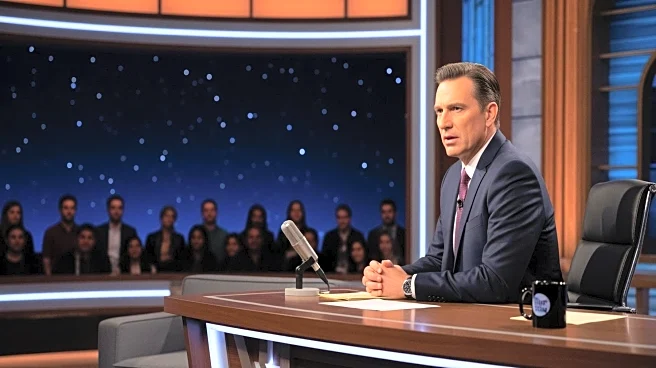What's Happening?
On a recent episode of 'The Late Show with Stephen Colbert,' actor Laura Benanti reprised her role as 'Fake Melania Trump,' delivering a comedic performance that took aim at several public figures, including
President Trump and Defense Secretary Pete Hegseth. The skit humorously addressed various topics, such as a proposal to rename the Kennedy Center's opera house in Melania Trump's honor, to which Benanti's character jokingly responded with a desire to change her name to Melania Kennedy. The segment took a turn when Colbert mentioned Jeffrey Epstein, leading to a comedic 'technical difficulty' as the fake Melania pretended to disappear from the screen, much to the audience's amusement.
Why It's Important?
The skit highlights the ongoing cultural and political discourse surrounding the Trump family and their public personas. Comedy shows like 'The Late Show' often use satire to comment on current events and public figures, influencing public perception and sparking discussions. The mention of Jeffrey Epstein, a controversial figure linked to many high-profile individuals, adds a layer of complexity and sensitivity to the comedic routine. Such performances can impact public opinion by blending humor with critique, potentially shaping how audiences view political figures and their actions.
What's Next?
As political satire continues to be a staple in late-night television, similar skits are likely to persist, especially with the upcoming election cycle. These performances may provoke reactions from political figures and their supporters, potentially leading to public statements or social media responses. The ongoing engagement with political satire underscores its role in American culture as a tool for both entertainment and commentary.
Beyond the Headlines
The skit also reflects broader themes of media influence and the power of satire in shaping political narratives. By addressing sensitive topics through humor, shows like 'The Late Show' can challenge viewers to think critically about the issues at hand. This approach can foster a more informed and engaged public, encouraging dialogue and debate on important societal matters.









